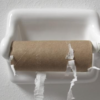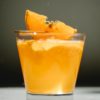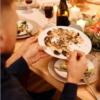This week Dr. Zac Turner looks at why you go into a “food coma” after Christmas lunch.
QUESTION:
Hi Dr. Zac, every Christmas I encounter the exact same conundrum. I wake up with bounding energy but right after lunch, around 3 pm, I become lethargic to the point I must have a nap. Can you explain the science behind my Christmas food coma?
Are there any tips to battling this fatigue so I can be the last man standing for once? – Matty, 45, South Australia.
ANSWER: A food coma isn’t just an excuse to avoid small talk at the table, there is real science behind why you feel lethargic after a big meal. There are some basic tricks to dodge the drowsiness to keep you awake all day.
Let me just preface this column by pointing out that Christmas lunch usually involves copious amounts of alcohol, and most of the time this tiredness would come from drinking and not the food. However, in the name of good science, let’s go through why your body is desperate to catch some Zs after a big Christmas lunch.
Many people are unaware of this but our digestive tracts are surrounded by nerves. One in particular, the vagus nerve, signals information between your brain and the gastrointestinal tract. The vagus nerve is like the lolly-pop lady of your digestion, and when it sees a big meal coming, it puts up the stop sign to your brain – signalling you must rest.
I’m sure someone at the Christmas table will try and tell you the reason for your drowsiness is because blood is directed away from our brain to your gut. That’s not correct: it’s proven our muscles are given less blood, which is why you may feel weak after a big meal.
Another factor which could be contributing to your tiredness is insulin. Insulin is a hormone that allows the body to process sugar into energy. Studies have shown insulin also plays a role in helping amino acids get to the brain.
Particular amino acids, such as Tryptophan, trigger relaxation hormones. The high insulin levels caused by Christmas lunch, might make it easier for these amino acids to get into our brain and subsequently set off our relaxation signalling pathway.
Guess where Tryptophan is found? Turkey. It’s also found in spinach, soy, eggs, cheese, tofu and fish.
I know I’ve just listed off three fancy explanations for your food-coma, which I’m sure you’ll be bringing up at lunch this year, but I can’t ignore the basic reasoning for why this is happening. Christmas lunch is carb heavy, and portions are larger than usual. Carbs raise insulin levels, and fill your digestive tract and stomach. The more food you eat, the more my three theories will come to fruition.
My first piece of advice to avoid the Christmas lunch coma is to not eat as much. But that isn’t as easy as it sounds, I know.
My other advice is to drink plenty of water before, during and after lunch. Try upping your electrolyte levels by sipping on coconut water or cucumber water.
Exercise in the morning may keep you feeling fit all day, as long as it isn’t too strenuous on your body. And if you really want to have energy to burn during the afternoon’s backyard cricket match – limit your alcohol intake. You will be amazed at how much more energy you will have.
If you feel tired after a meal, there’s a good chance it’s just your body responding to all of the biochemical changes caused by digestion. However, if the symptoms persist it might not hurt to talk to your doctor or to seek help from a dietitian.







